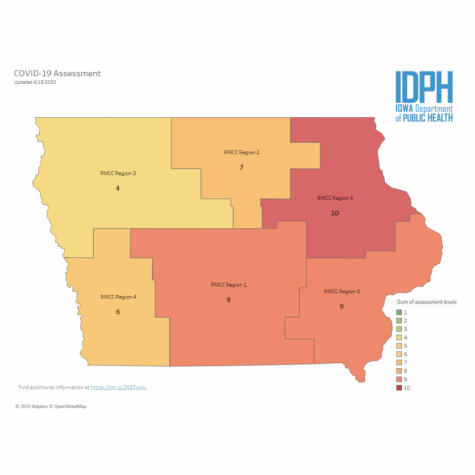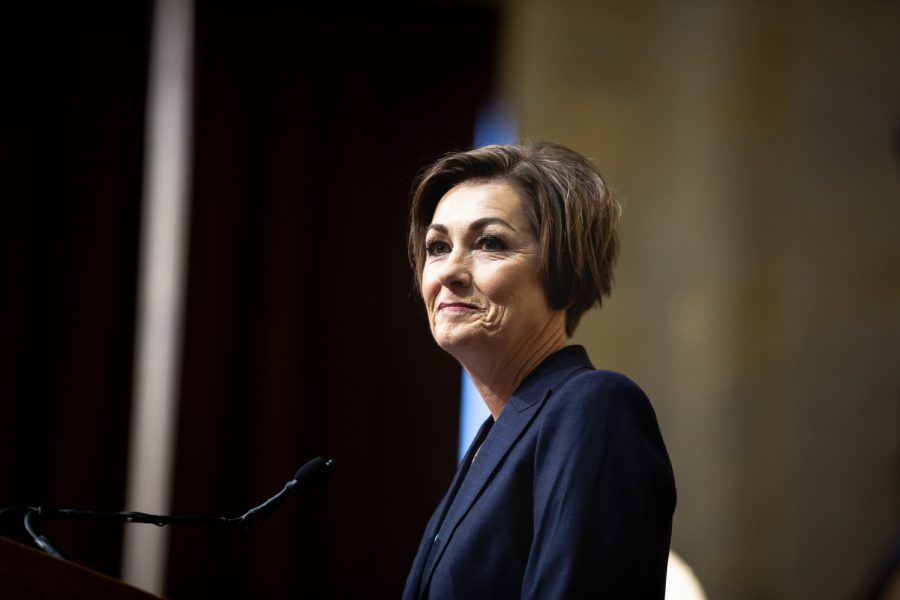Reynolds restricts gatherings to immediate household members in northeast Iowa region
Stricter gathering measures were ordered in region six of the state, which includes Linn and Black Hawk counties. The measure, which is not being called a shelter-in-place, comes as the region reaches a score of 10 on public-health metrics, which officials previously said would trigger a shelter-in-place recommendation.
Gov. Kim Reynolds speaks during the Condition of the State address at the Iowa State Capitol on Jan. 14.
April 16, 2020
Gov. Kim Reynolds announced tighter restrictions on northeast Iowa during a press conference Thursday, which would limit gatherings to only household members.
The measure affects residents in Iowa’s 15-county RMCC region six, including Linn County, which has the most confirmed COVID-19 cases in the state.
The order, effective Thursday at 11:59 p.m., bans gatherings for “social, community, recreational, leisure, or sporting activities” across the 15 counties in the region, and requires that people gather only with members of their immediate household.
Limited exceptions will be made for weddings, funerals, and religious gatherings, Reynolds said, but those will still be limited to 10 or fewer people.
Public-health officials have divided the state into six regions, giving each a score of zero through 12. Region six reached a score of 10 Thursday.

Reynolds did not use the phrase “shelter in place,” but a document from the Iowa Department of Public Health providing guidance for scoring the regions says a score of 10 would trigger a shelter-in-place recommendation.
“We will continue to monitor the data and adjust our mitigation strategies as necessary, as we’re doing today in region six,” Reynolds said. “But I believe that before long, we will see more signs of progress, and we will begin to get life back to normal.”
RELATED: Reynolds remains fixed against shelter-in-place order
Reynolds also announced an initiative called “Test Iowa,” which is an effort to increase COVID-19 testing in the state. She said the initiative would increase Iowa’s testing capacity by 3,000 per day and begin conducting antibody testing, which will show if someone previously had COVID-19 and recovered.
The plan also involves hiring more nurses and health-care professionals to conduct contact tracing at long-term care facilities and large businesses to help identify high-risk areas and slow the spread of the virus.
“In addition to identifying potential exposure among residents in a community, they’ll also be able to conduct follow-up and recovery assessments for each positive case,” Reynolds said.



